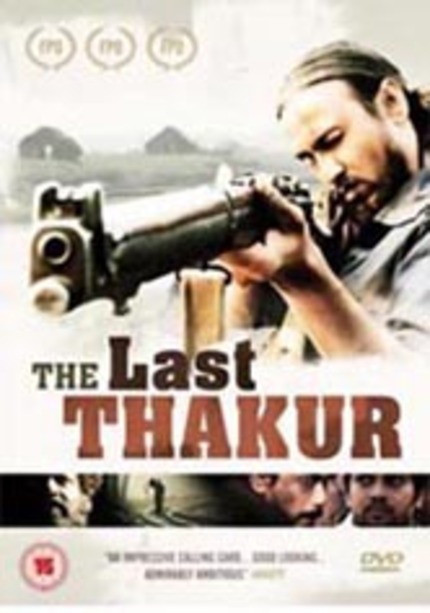SAIFF 09: THE LAST THAKUR Review

A lone gunman arrives in a remote market town in the Bangladeshi marshlands. He is dressed in the blues of a guard, and in addition to his rare rifle, carries a tattered slip of paper which he clings to with great fear.
In a town without guns, a town torn asunder, the Guard (Tanveer Hassan) catches the eyes of both men in power; The newly elected "Chairman" (Ahmed Rubel) and the Thakur of the title (Tariq Anam Khan). The Chairman is a well groomed menace of a man, a Muslim surrounded by yes men. He keeps rule in the market, at his tea shop of a throne. The Thakur (while here a landlord Brahmin, the word has multiple meanings in South Asian Hindu cultures) is building a temple. He limps about from an old wound, meekly overseeing construction with his blind assistant and confidant, Mustafa. Even without the shadow of the Chairman above him, surely he is a man whose days are numbered.
Narrated in part by the Chairman's teaboy, Waris, and taking place over the course of one day, this is a tale of lost sons and ambitious men heading for what can only be oblivion. These three men form the triangle which will send them to their fates. Though they are occasionally referred to by their given names, their titles are larger than life, and give support to Ahmed's mythic like constructs.
Within the lean 80 minute running time, Ahmed manages to let his film breath, adding a lyrical undertone to the picture as we travel across the faces of the market workers or ponder by the shoreline at dusk. And all the while the pieces move forward, most distinctly led by the wild eyed, enigmatic Hassan. Starving for revenge, obsession rattles his bones. Hassan brings to the Guard understatement with a thunder clap.
Khan plays the Thakur with quiet gestures of deep sadness and growing insanity. Totally alone but for Mustafa, Khan shows fragments of what must have been once a great and gentle man.
A clear bully, Rubin's Chairman is perhaps the simplest, most one dimensional of the roles. Though a physically daunting actor, he opts out of chewing the scenery or pushing on brute force alone. Tactful and cunning, a venerable wolf, he toys with his prey. Yet as much as a bully bites, they can't take it when someone bites back. A notorious womanizer, he is but most susceptible when sitting next to the ear of a woman.
A man with multiple talents, Ahmed is also the cinematographer, lensing his film with a worn, weathered, yet soft, almost pristine look. Shot on digital video and rarely looking it, if he doesn't get work as a director, he surely will as a cinematographer. Plus, made for $100,000 the film boasts the largest constructed open air set for a Bangladeshi production.
A technically and thematically impressive debut that both transcends and embraces its genre, Ahmed already has a keen eye and an astute grasp of what I like to call the cinematic soul. That is to say, emotion through action, feeling through vision, thinking through seeing. The Last Thakur is already available on DVD in the UK through Artificial Eye, one of the film's producing partners.

Do you feel this content is inappropriate or infringes upon your rights? Click here to report it, or see our DMCA policy.






